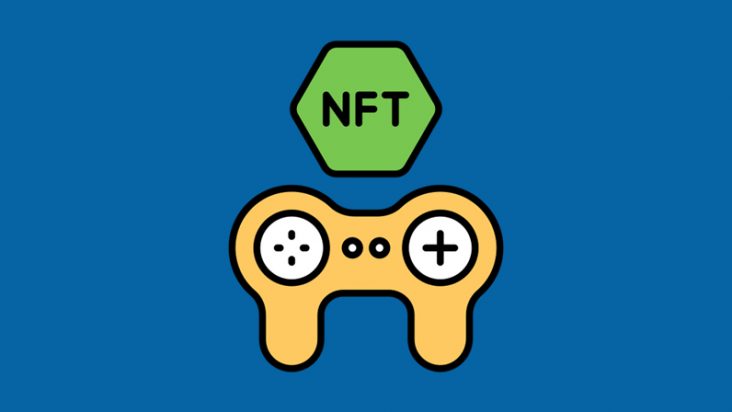
Blockchain technology has emerged as one of the most transformative innovations in recent years, redefining how industries operate by offering decentralized, transparent, and secure systems. Initially developed to support cryptocurrencies like Bitcoin, blockchain has transcended its roots to impact sectors such as finance, supply chain, healthcare, real estate, energy, and more. By enabling trust, efficiency, and security, blockchain is revolutionizing industries in unprecedented ways.

Financial Sector: Transforming Transactions and Trust
In the financial sector, blockchain eliminates intermediaries like banks, which traditionally add costs and delays to transactions. Peer-to-peer transactions verified through a distributed ledger significantly reduce the time and fees associated with cross-border payments, completing in minutes rather than days. Smart contracts further revolutionize finance by automatically enforcing agreements once predefined conditions are met, removing the need for middlemen and ensuring trust. The rise of decentralized finance (DeFi) platforms enables individuals to borrow, lend, or invest without relying on banks. Leading financial institutions, including JPMorgan and Goldman Sachs, are investing heavily in blockchain-based solutions to streamline operations, reduce fraud, and enhance security.
Supply Chain Management: Enhancing Transparency and Efficiency
Supply chain management has also seen significant improvements through blockchain, which provides unmatched transparency and traceability. Traditional supply chains often suffer from inefficiencies, fraud, and a lack of visibility. Blockchain allows companies to track goods in real-time at every stage, from production to delivery, enabling more efficient operations and quicker identification of bottlenecks. By using unique digital identifiers and timestamps, businesses can monitor the entire lifecycle of a product, ensuring accuracy and reducing losses caused by mismanagement or errors.
Industries like pharmaceuticals and luxury goods use blockchain to verify product authenticity, combating counterfeiting and protecting brand reputation. Blockchain-based systems allow customers to scan a product’s QR code and view its journey, ensuring trust between businesses and consumers. Furthermore, blockchain enhances food safety in sectors like agriculture and retail by enabling rapid identification of contaminated products in the event of a recall, as demonstrated by Walmart’s blockchain-backed food traceability system. By automating documentation, reducing reliance on paper-based processes, and integrating smart contracts to manage agreements, blockchain minimizes human errors and fraud while optimizing supply chain efficiency. Companies such as IBM, Maersk, and Walmart have successfully implemented blockchain solutions to improve operational transparency, reduce delays, and boost collaboration across global supply chains.
Healthcare: Improving Security and Data Interoperability
In healthcare, blockchain addresses critical challenges such as data security, fragmented records, and a lack of interoperability. By providing a unified and secure platform to store and share medical data, blockchain enables tamper-proof electronic health records (EHR) that can be seamlessly accessed by both patients and providers. Pharmaceutical companies leverage blockchain to ensure the safety and authenticity of medications through drug traceability systems, while clinical trials benefit from immutable records that enhance transparency and prevent data manipulation. Platforms like MedRec and Guardtime are leading this transformation, ensuring that healthcare systems are more efficient, sec
Healthcare: Improving Security and Data Interoperability
In healthcare, blockchain addresses critical challenges such as data security, fragmented records, and a lack of interoperability. By providing a unified and secure platform to store and share medical data, blockchain enables tamper-proof electronic health records (EHR) that can be seamlessly accessed by both patients and providers. Pharmaceutical companies leverage blockchain to ensure the safety and authenticity of medications through drug traceability systems, while clinical trials benefit from immutable records that enhance transparency and prevent data manipulation. Platforms like MedRec and Guardtime are leading this transformation, ensuring that healthcare systems are more efficient, secure, and trustworthy.
Real Estate: Simplifying Transactions and Reducing Fraud
The real estate sector, long plagued by paperwork, intermediaries, and fraud, has also embraced blockchain technology to simplify processes and enhance transparency. Blockchain streamlines property transactions through smart contracts, which automate agreements and reduce reliance on brokers, speeding up the buying and selling process. By maintaining a tamper-proof ledger of property records, blockchain reduces the risk of fraud and ownership disputes. Additionally, blockchain enables the tokenization of real estate assets, allowing properties to be divided into digital tokens for fractional ownership. This innovation makes real estate investment more accessible to a broader audience, with companies like Propy and RealT already demonstrating blockchain’s potential to transform the industry.
Energy Sector: Enabling Decentralization and Sustainability
In the energy sector, blockchain optimizes energy distribution, reduces costs, and supports sustainable solutions. Peer-to-peer energy trading allows individuals to share excess renewable energy with neighbors, bypassing traditional utilities. Blockchain also enhances energy grid management by providing real-time tracking of energy usage, improving efficiency and stability. Furthermore, blockchain ensures the transparency and authenticity of carbon credits, helping organizations meet sustainability targets. Projects like Power Ledger and WePower are at the forefront of blockchain-based energy solutions, fostering a more efficient and decentralized energy system.
Retail and E-Commerce: Building Trust and Efficiency
Retail and e-commerce have also experienced a significant transformation with blockchain technology. By improving supply chain transparency, blockchain allows retailers to provide customers with detailed information about the origin and journey of products, enhancing trust and confidence. Blockchain simplifies loyalty programs, making them more transparent and accessible, while also enabling secure and fast payments that reduce fraud. Retail giants such as Amazon and Alibaba are exploring blockchain to enhance operational efficiency, improve customer satisfaction, and boost overall transparency.
Media and Entertainment: Empowering Creators and Protecting Content
The media and entertainment industries are using blockchain to solve longstanding issues such as piracy, copyright infringement, and unfair revenue distribution. Blockchain creates immutable records of content ownership, providing strong copyright protection and reducing piracy. Artists and creators benefit from blockchain-based platforms that allow them to receive direct payments and monetize their work transparently, bypassing intermediaries. Platforms like Audius and Ujo Music exemplify how blockchain empowers content creators by ensuring fair compensation and greater control over their intellectual property.
Government Services: Promoting Transparency and Security
Governments and public sectors are also adopting blockchain to enhance transparency, security, and efficiency in public services. Blockchain-based voting systems enable secure and tamper-proof elections, reducing fraud and increasing trust in the electoral process. Identity management solutions provide a decentralized way to manage personal information securely, improving accessibility for citizens. Blockchain is also revolutionizing land registries by creating transparent and tamper-proof records of ownership, reducing disputes and fraud. Estonia has set an example by successfully integrating blockchain into its public services, showcasing how governments can use the technology to improve governance.
Shaping a Decentralized and Efficient Future
Blockchain technology is revolutionizing traditional industries by addressing inefficiencies and enabling transparency, security, and trust. From finance and supply chain management to healthcare, real estate, energy, and public services, blockchain’s applications are vast and transformative. As industries continue to innovate and adopt this technology, its potential to reshape the global economy becomes increasingly evident. While challenges such as scalability and regulation persist, blockchain is undoubtedly paving the way for a more efficient, secure, and decentralized future.








